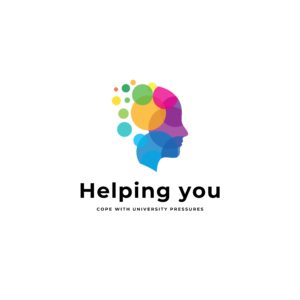In this blog I explain what Text neck syndrome is, its symptoms and self help tips.
“I can’t believe I used to wake up early, leave my house wearing a suit, tie, and squash myself onto a packed train to go and sit in front of a computer”. This tweet triggered all the emotions of 23/03/20. This is the day the Prime Minister announced lockdown and restrictions for us to work from home. Both employers and employees were in utter panic. No training had been provided, no one seemed clear. How were we going to work from home? Although equipment was provided the switch was sudden. Ohh there was a lot to learn in a rather short time. And on top of that, there was a deadly pandemic raging throughout the world. Notwithstanding, within a couple of weeks many were familiar with Zoom and Microsoft Teams.
Fast forward to today and many are perhaps reaping the benefits of remote working. For example as saving money from not commuting, more effective team meetings, fewer office politics, I could go on. As someone recently succinctly put it, “this is probably the only ray of light amid the darkness.” With the many benefits to come with it, life has somewhat been simplified. However, a new trend has emerged alongside remote working, known as ‘Text Neck’
What is Text Neck?
Glad you ask. Text neck syndrome is a term used to describe neck pain and damage from looking up and down at your computer, mobile phones, tablets, or other devices. The prolonged and repetitive use of these devices with little movement is what causes neck and shoulder pain and damage to the spine. Some refer to it as the ‘Tech Neck’ and others ‘Text Neck Syndrome.’ Although initially commonly associated with texting, today it can be related to many activities most common of which are remote working, engaging in social media, chatting, or playing video games. You see education has also changed forever. Now most teaching is undertaken remotely and on digital platforms (Hybrid model) because of COVID-19. Many believe that this model of education is the best way forward with many significant benefits.
As a lecturer; we can reach out to more students more efficiently and effectively no matter their location. That means more international students without the hassle of student visas, accommodation costs, being away from loved ones. However, the more popular remote working is becoming the more popular ‘Tech Neck’ is becoming. As a result of spending prolonged times at the work desk in front of a screen sitting in a bad posture. And during our breaks what do we do? yes…we switch to the phones and gadgets for updates on Twitter, Instagram, or funny addictive videos on TikTok.
Signs of text neck:
- Headaches
- stiffness of shoulders
- postural change
- pain in the neck
- back
- hands
- arms
- shoulders
- wrists
- fingers
- elbows
- tingling or numbness in the upper extremities
- soreness in the neck, the list goes on.
So, what has it got to do with university students’ mental health?
Although almost all of us are at risk because we are digitally prone, University students are the most affected. So how is remote learning impacting the students’ mental wellbeing? Well, here is the thing, remote learning fosters feelings of isolation, disconnect, and loneliness which may cause stress and anxiety. Boundaries often become blurred especially when students don’t know when to switch off and do other things. Some feel guilt that because they’ve been home, they haven’t done enough so they keep going. This gradually affects their motivation and productivity leading to burnout.
With online classes and having to keep up with what’s happening on social media, to keep in touch with friends, they spend prolonged periods in front of a screen. And we know that use of mobile phones has increased during the pandemic. This has left some students addicted to their smartphones. Several studies have indicated that social media may lead to feeling low, self-esteem issues, anti-social behaviors, and unhealthy snacking. To some students who are good with boundaries once they switch off, they have a nap and then this may end up disrupting their circadian rhythms e.g sleep which then impacts mood.
Prevention of Text neck syndrome:
Maintaining good posture is one of the best ways to avoid ‘Tech Neck. By sitting with the body aligned perfectly maintaining the spine’s natural curvature. Picture yourself with your head being pulled upwards towards the ceiling by a string attached to the top of it. Avoid slouching, sit squarely to your screen, and minimize looking down for prolonged periods of time. In addition to that, try holding your phone at eye level as much as possible, and ensure you have frequent breaks in between, if seated get up and walk every 20-30 minutes.
Is any support available?
Most universities now have counseling services, mental health, and wellbeing advisers, alongside multi-faith chaplains. Many are specialized in supporting students – please check your university website or ask your tutor discreetly.
Students Unions may also help with basic life advice and Signposting to University facilities. Student minds offer support, and so does the Big White Wall. Almost all GPs in the UK are connected to a Talking therapies service – ask to be referred or self-refer for free support. There is also a plethora of self-support through psychoeducation with leaflets for many conditions available to download at; https://web.ntw.nhs.uk/selfhelp/
As if the above isn’t enough damage, worth noting that this pandemic could also contribute to high healthcare costs and demands. Also longer waiting times for support as well as time off school/work due to sickness leading to shortages everywhere.
I guess what am saying is; try to be patient with yourself. Remember people don’t care about you as much you care about yourself. Don’t overthink about any awkward interactions, they probably forgot already. Don’t overwork. Lastly, it’s not your job to fix what they won’t. And your worth is not based on what you do or achieve.
MORE SUPPORT

